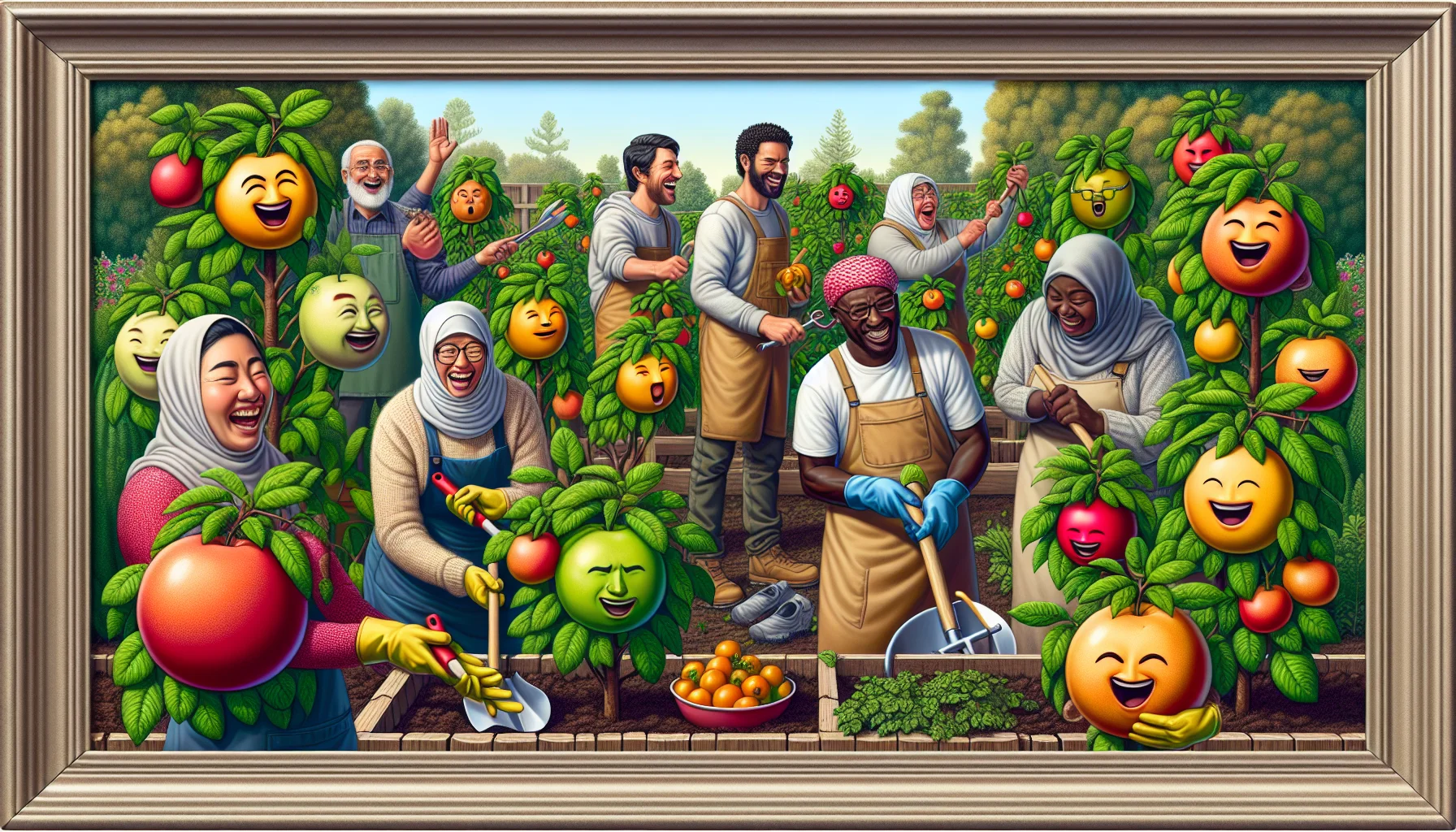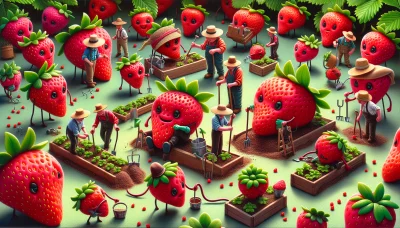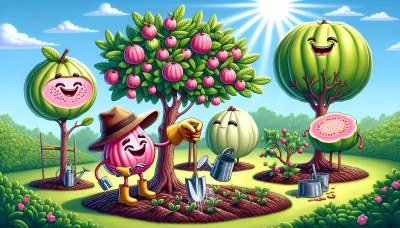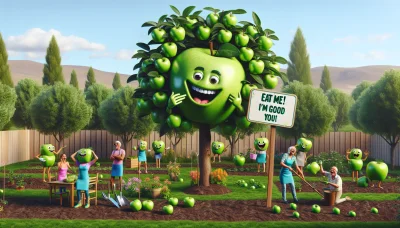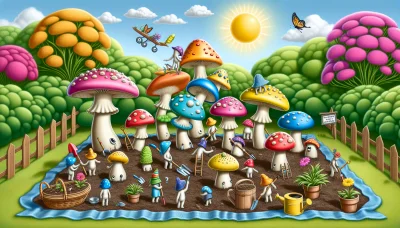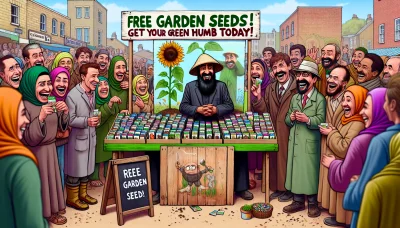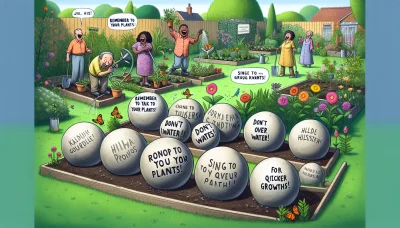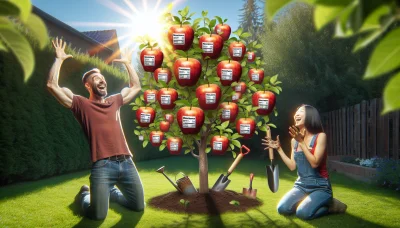Durham fruit Quiz
Test Your Knowledge
Question of
Introduction to Durham Fruit Gardening
Fruit gardening in Durham offers a multitude of benefits and is an increasingly popular activity among residents. The practice not only provides the opportunity to grow fresh, delicious fruits right in your backyard but also contributes to a healthier lifestyle and environment. Engaging in fruit gardening can enhance local biodiversity, encouraging a variety of beneficial insects and birds to thrive. Additionally, it promotes sustainability by reducing the carbon footprint associated with transporting fruit over long distances. For the community, it fosters a sense of connection and well-being as people share their gardening experiences and harvests. Overall, fruit gardening in Durham is a rewarding endeavor that supports both personal and environmental health.
Choosing the Right Fruit Trees for Durham
- Apple Trees: Well-suited for Durham's climate, offering a variety of types that bloom in late spring and produce fruit in the fall. They require full sun and well-drained soil.
- Peach Trees: Thrive in the warm summers, with early to late varieties extending the harvest season. They need plenty of sunshine and good air circulation to prevent fungal diseases.
- Pear Trees: Hardy and less prone to diseases, making them a great choice for beginners. They enjoy the cooler temperatures of Durham and can produce fruit for many years with proper care.
- Fig Trees: Although not a traditional choice, figs can prosper in Durham with the right protection during the colder months. They prefer sunny, sheltered spots and can be grown in the ground or containers.
- Cherry Trees: Both sweet and sour cherries can be grown, but sour varieties tend to be more reliable in Durham's climate. They need well-drained soil and are susceptible to late frosts, so choose your planting site carefully.
- Plum Trees: With varieties that are suited to both warm and cooler climates, plums can do well in Durham. They require full sun and well-drained soil, and can be susceptible to pests, so monitoring and care are important.
Planting Your Durham Fruit Trees
Planting fruit trees in Durham involves careful planning and execution to ensure the best start for your new trees. The ideal time for planting is during the dormant season, from late fall after leaf drop, to early spring before bud break. This timing helps the trees establish roots in their new location before the stress of summer heat and drought. Soil preparation is a crucial step; Durham soil often requires amendment to improve drainage and nutrient content. Start by testing the soil pH and nutrients to determine what amendments might be needed. Incorporating organic matter, such as compost, can improve soil structure and fertility. When planting, dig a hole twice as wide as the root ball but no deeper, to prevent settling. Place the tree so that the root flare (where the roots spread at the base of the trunk) is just above the soil surface. Backfill the hole with native soil, gently tamping down to remove air pockets, and water thoroughly to settle the soil around the roots. Mulching around the base of the tree can help retain moisture and regulate soil temperature, but keep the mulch a few inches away from the trunk to prevent rot. Initial care involves regular watering to keep the soil moist but not waterlogged, especially important during the first growing season to establish a strong root system. With these steps, your Durham fruit trees will be well on their way to thriving and producing delicious fruits for years to come.
Caring for Your Fruit Trees in Durham
- Watering: Water your fruit trees deeply but infrequently to encourage deep root growth. In Durham's hot summers, young trees may need watering every week, while established trees can be watered every two to three weeks.
- Pruning: Prune your fruit trees during the dormant season, typically late winter, to remove dead or diseased branches and to shape the tree for better sunlight penetration and air circulation.
- Pest Management: Monitor for common pests such as apple maggot and peach tree borer. Use environmentally friendly pest control methods like pheromone traps and encourage beneficial insects by planting diverse species around your fruit trees.
- Soil Care: Apply a layer of mulch around the base of your fruit trees to conserve moisture, regulate soil temperature, and suppress weeds. Ensure the mulch is not touching the tree trunk to prevent rot.
- Fertilization: Test your soil to determine its nutrient needs. In Durham, fruit trees typically benefit from a balanced fertilizer applied in the early spring as new growth appears.
- Choosing the Right Varieties: Select fruit tree varieties that are well-suited to Durham's climate. Local extension services can recommend varieties that perform well in our area.
Common Challenges in Growing Fruit Trees in Durham
Gardeners in Durham face several common challenges when growing fruit trees, which can significantly impact their success. One of the primary issues is the onslaught of pests that target fruit trees, ranging from aphids to fruit borers, which can damage both the trees and the fruit they bear. Diseases are another major concern, with fungal infections like powdery mildew and bacterial diseases such as fire blight posing serious threats to the health of fruit trees. Additionally, the climate in Durham presents its own set of challenges. The region's weather can be unpredictable, with sudden frosts in late spring or extreme summer heat waves, both of which can stress fruit trees and affect their yield and overall health. These challenges require gardeners to be vigilant and proactive in their care for fruit trees, employing a range of strategies to mitigate these issues and ensure a bountiful harvest.
Harvesting and Enjoying Your Durham Fruits
Knowing when your fruits are ripe for harvesting is crucial for enjoying the freshest and most flavorful produce. For many fruits, the best indicator of ripeness is color. For example, strawberries turn a deep, vibrant red, and apples often develop a rich hue, depending on the variety. Another telltale sign is the ease with which fruit detaches from the plant; a ripe fruit will typically come off with a gentle tug. The fragrance is also a good indicator; ripe fruits usually emit a sweet, full aroma. Once harvested, there are numerous ways to enjoy your Durham fruits. Fresh off the vine, tree, or bush is always a delight, offering the most natural and refreshing flavors. For a longer-lasting enjoyment, consider making jams, jellies, or preserves. These methods not only extend the shelf life of your harvest but also provide a way to savor the flavors of summer and fall throughout the year. Baking is another excellent way to use your fruits, with pies, crumbles, and cakes offering a warm and comforting way to enjoy your labor. Don't forget about freezing; many fruits freeze well and can be used in smoothies or as toppings for ice cream and yogurt, providing a taste of summer even in the cooler months.
Joining Durham's Gardening Community
If you're a gardening enthusiast looking to enrich your gardening journey, connecting with Durham's local gardening community is a wonderful way to start. By joining, you'll find a supportive network of fellow gardeners eager to share their experiences, tips, and tricks. Whether you're a beginner or an experienced gardener, there's always something new to learn and discover. From swapping seeds to participating in local gardening events, being part of this vibrant community will surely enhance your love for gardening and help you grow alongside your plants.
